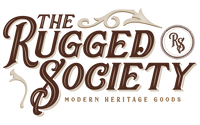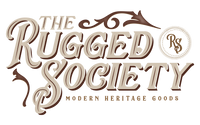Riding the Forgotten Trails: The Grit and Glory of Black Cowboys

It’s a hell of a thing, the way history gets written. They give you the whitewashed version, the one where the cowboy is always a white guy with a tough jawline and a cigarette dangling from his lips. But that’s not the whole story, not by a long shot. Out here in the dust and the grit of the American West, the Black cowboys carved out their own damn legacy, one cattle drive at a time.

Nat Love, they called him "Deadwood Dick," a man who turned the cattle trails into his own legend.
The Forgotten Pioneers
After the Civil War, the South was a mess. So, a lot of freed slaves took their chances and headed west, chasing freedom and a buck. The cattle industry was booming, and these Black cowboys became the backbone of it. They were tough, skilled, and unflinching, driving cattle from Texas to Kansas railheads, feeding the ravenous mouths of the East.
“These guys weren’t just part of the story—they were the story, without them, the cattle drives would have sputtered and stalled.”

Masters of the Trade
These Black cowboys weren’t greenhorns. They’d honed their skills on plantations, handling livestock, and they brought that expertise out to the open range. Nat Love, known as "Deadwood Dick," is one of those legends. Born a slave in Tennessee, Love’s autobiography spills the beans on his wild life—one filled with danger, skill, and more than a few brushes with death.
The Ugly Truth
But let’s not sugarcoat it. These men faced a world that didn’t want them. They were paid less, treated like dirt, and often barred from even setting foot in certain towns. Yet, they rode on, proving their worth with every mile, every head of cattle delivered.
“Their resilience is a damn testament to the human spirit, they faced down more than just the dangers of the trail.”
Rodeo Legends and Lawmen
Black cowboys also kicked up dust in the rodeo arena. Bill Pickett, a name you might not know but should, invented bulldogging—leaping from a horse to wrestle a steer by its horns. His showmanship left crowds in awe and cemented his place in rodeo history.

Bill Pickett, a rodeo performer who redefined the sport with his daring technique.
And then there were the Buffalo Soldiers, Black regiments in the U.S. Army keeping the peace in the untamed West. Bass Reeves, one of the first Black deputy U.S. marshals, took down outlaws by the hundreds, making the law his own brand of justice.
Remembering the Legends
Today, the tales of these Black cowboys are finally getting their due. Museums and cultural events are cropping up, bringing their stories out of the shadows. The National Multicultural Western Heritage Museum in Fort Worth, Texas, and the Black Cowboy Museum in Rosenberg, Texas, are just a couple of places giving these men the recognition they deserve.
“Their stories aren’t just important—they’re essential, they’re the unsung threads in the fabric of our history.”

Riding into the Sunset
As America continues to sift through its past, the stories of Black cowboys stand out as reminders of a more complicated, richer history. These men—through grit, guts, and sheer will—helped forge the West. Their legacy is as dusty and raw as the trails they rode, a testament to the diversity and resilience at the heart of the American frontier.

